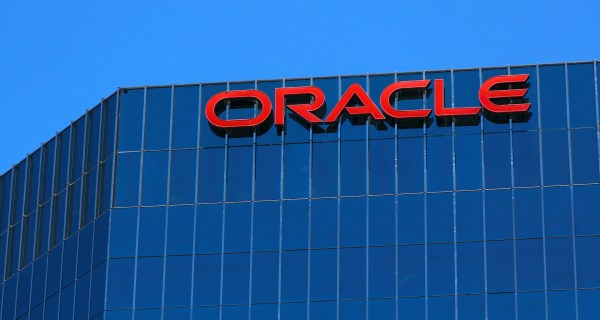Inside DOD’s JEDI replacement, the Joint Warfighter Cloud Capability

After years of pursuing a single-vendor model for its general-purpose, enterprise cloud under the Joint Enterprise Defense Infrastructure (JEDI) acquisition and failing to move it into operation, the Department of Defense announced this week it will pivot to a multi-vendor enterprise cloud acquisition called the Joint Warfighter Cloud Capability (JWCC), issuing a presoliciation notice to industry.
While details of the forthcoming JWCC are limited for now, DOD acting CIO John Sherman revealed some key changes for the procurement. The department will look to issue multiple direct awards with cloud service providers and is also intending to seek proposals from JEDI-winner Microsoft and its main competitor Amazon. Several years down the road, DOD will also pursue a “larger, full-and-open” multi-cloud procurement.
Sherman said the new program will “fill our urgent unmet requirements for a multi-vendor enterprise cloud spanning the entire department in all three security levels, with availability from [the Continental U.S.] to the tactical edge at scale. JWCC will enable us to fulfill the promise of transformational activities such as Joint All-Domain Command and Control, or JADC2, and the Artificial Intelligence and Data Acceleration or AIDA initiative.”
While the continued protests of JEDI undoubtedly impacted DOD’s decision to cancel the beleaguered contract Tuesday, Sherman said even if it had gone into operation as intended after award, “we would have been having this multi-cloud discussion right about now anyway” due to the evolving needs of the department.
Though the DOD has a variety of existing vehicles to work with each of these cloud providers in place, like milCloud 2.0 and others, Sherman said there is “nothing to the extent and reach that the enterprise capability we’re seeking to acquire from this will provide through JWCC — truly from the headquarters to the tactical edge in all three security levels at scale.”
Where JEDI was a potential 10-year, $10 billion contract with an open competition, JWCC will be a maximum five-year vehicle worth multiple billions. The new contract also differs in that only those providers that the DOD believes meet its requirements will receive “direct” solicitations to submit proposals for contracts. While Sherman said Amazon and Microsoft both qualify, he clarified that they will not automatically be awarded anything; rather, they will be asked to submit proposals.
Each cloud provider will need to be able to offer services at the unclassified, secret and top-secret security levels, with parity across each of those levels. On top of that, the procurement’s basic requirements call for integrated cross-domain solutions, global availability including at the tactical edge and enhanced cybersecurity controls.
On the topic of price, that will be determined later in the procurement, Sherman said, emphasizing that people shouldn’t get fixated on a certain figure.
Over the next several months, the DOD will conduct market research and industry outreach to confirm its plans for the procurement and the companies that qualify to submit proposals, launching a final solicitation by mid-October, Sherman said. The hope is to issue final awards by “about April 2022.”
“Over the next roughly three months, we will conduct this additional research and direct engagements with other U.S. hyperscale cloud service providers or CSPs to ensure our assessments are accurate and based on the company’s latest information,” he said, noting that the department will be in close touch with other providers like IBM, Google and Oracle to see if they qualify to participate. “If we determine that additional vendors can also meet our requirements, then we will extend solicitations to them as well.”
Asked for his thoughts if there may be companies left out that may inevitably protest, forcing the JWCC acquisition to drag out like JEDI did, Sherman said if a provider is interested in participating, he and his team will be working with them to “hear fully their company’s capabilities.
“We’re going to be asking for artifacts and engagement to ensure that if they’re able to meet the level we need, that we get all that information and keep that door open through October,” he said. “That’s how we’re going to approach this. And whereas we can never control for every factor, our openness of this is going to be critical on that point.”
The direct awards with the providers will be indefinite-delivery, indefinite-quantity contracts that span a three-year base period and two optional years.
“We believe this contract period is both appropriately brief for a direct award but long enough for us to start to leverage the new enterprise capabilities as we fully develop our longer-term plan,” Sherman said.
Based on the timeline, as soon as 2025, the department could then move into a full-and-open competition that would follow on this initial acquisition, if the department deems it’s ready, Sherman said. “Once the second year of this direct award phase starts, roughly in 2023, for the next two years, we’re going to be working on the scoping and other activities to get ready for that larger, full-and-open competition.”
While the DOD Office of the CIO has ultimate oversight of the acquisition strategy, the Cloud Computing Program Officer within the Defense Information Systems Agency will lead the management and operation of any activities under JWCC and integration among providers.
This story was featured in FedScoop Special Report: The Continued Push to The Cloud - A FedScoop Special Report






